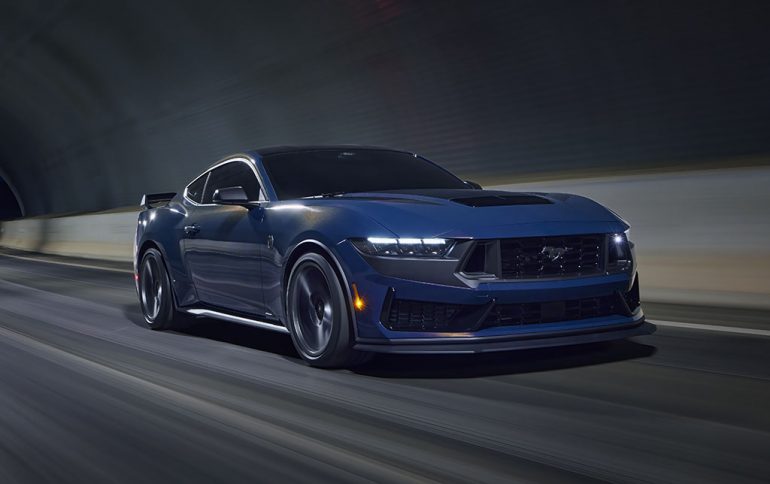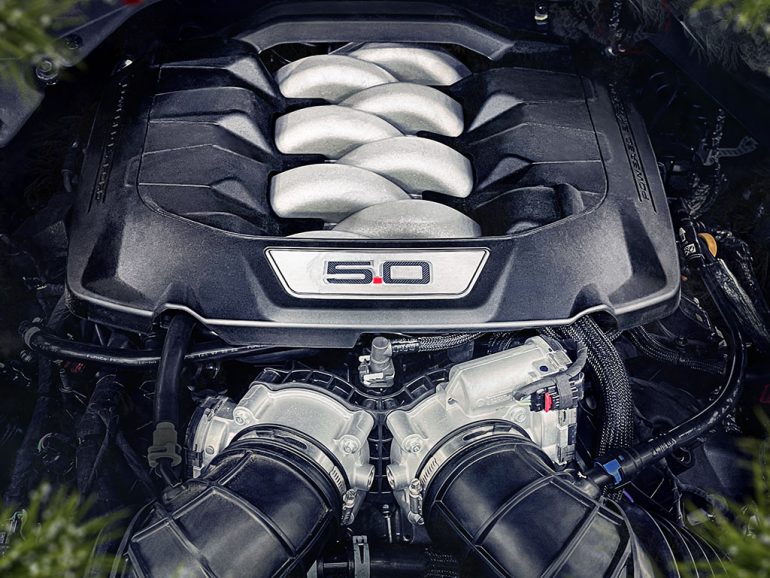
In the ever-changing landscape of automotive technology, being a fan of the traditional V8 engine is becoming increasingly challenging. Many companies are adopting forced induction, batteries, or a combination of both to meet stricter regulations and environmental concerns. However, amidst this transformation, the iconic Ford Mustang is still holding on to its V8 heritage, at least for the time being.
Ford executives have assured enthusiasts that the V8 engine is not yet destined for extinction. Mark Rushbrook, the global director of Ford Performance Motorsports, emphasized that they have not set an end date for the V8’s presence in the Mustang lineup. While uncertain about the future due to ever-evolving regulations, they intend to continue building V8-powered Mustangs as long as possible.
Also, don’t forget that you can get discounted new car pricing with a free quote through qualified local dealer partners.
Tim Smith, the Mustang’s chief vehicle integration engineer, shares the sentiment and acknowledges the vital role the V8’s distinct sound plays in defining the character of the model. Nonetheless, he recognizes that regulations will become increasingly stringent, requiring creative solutions to keep the V8 alive. Possible strategies include exploring synthetic fuels, hybrid technology, or other means to comply with regulations while preserving the beloved V8 experience.

Could the Ford Mustang be the very last vehicle with a naturally aspirated V8 engine? Despite the commitment to the V8, Ford engineers remain open to adapting their approach depending on market demands and regulations. The 5.0-liter Coyote V8, which powers several 2024 Mustang variants, may receive updates or evolve into a region-specific option. Certain markets, like the United States, Australia, and the Middle East, where demand and regulations are more lenient towards internal combustion engines, could continue to offer the V8 option. However, in regions like the European Union, where the push towards cleaner technologies has been strong, the V8 might be omitted.
As for the competition, the future of V8-powered performance cars seems uncertain. Dodge is ceasing production of the Challenger and Charger, and its potential successor might not feature a V8 engine, raising doubts about the continuation of the V8 muscle car lineage. Meanwhile, the Chevrolet Camaro is entering its final model year, and rumors speculate that it might transition into an electric sedan, signaling a significant shift away from traditional internal combustion engines.